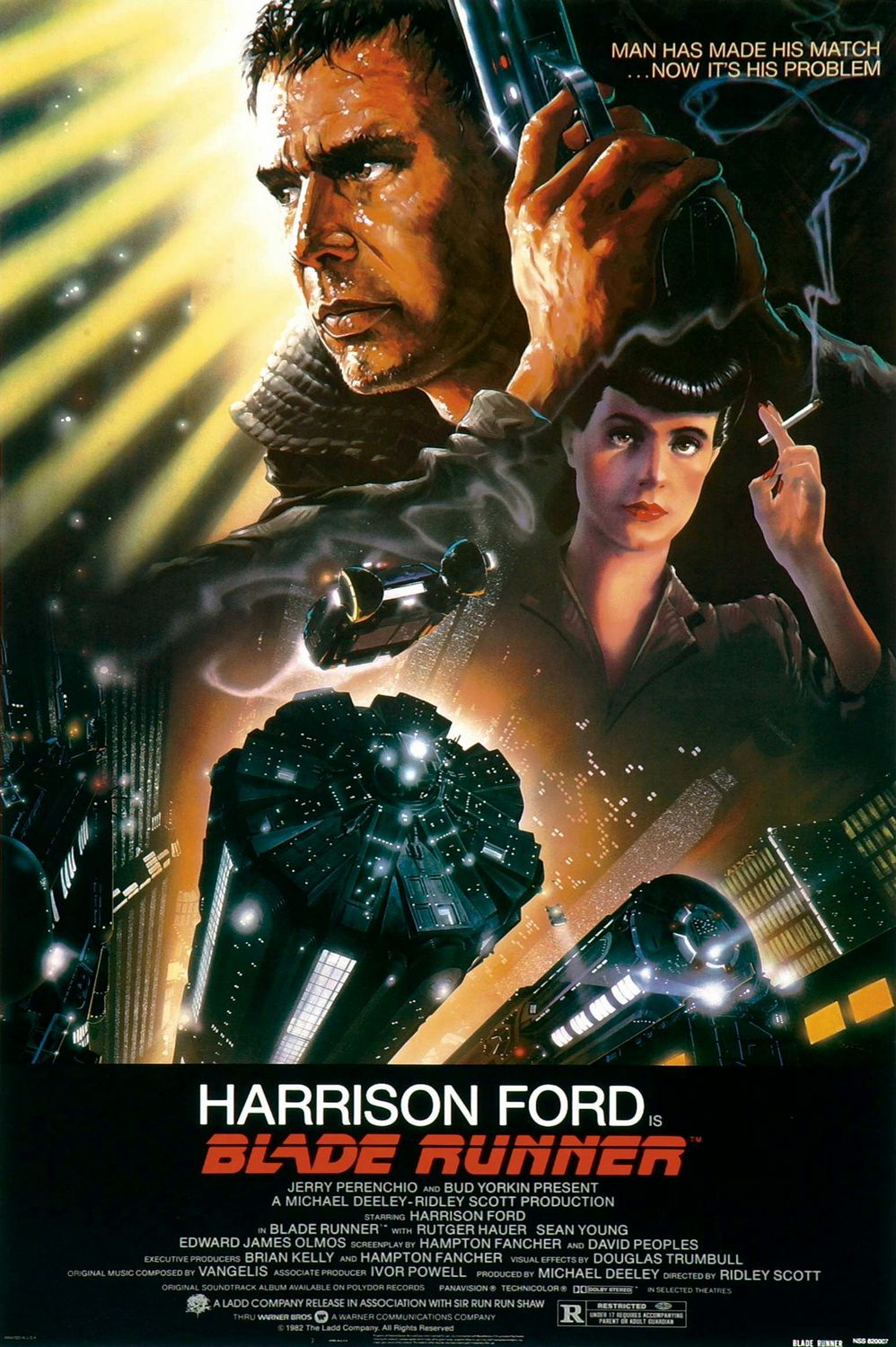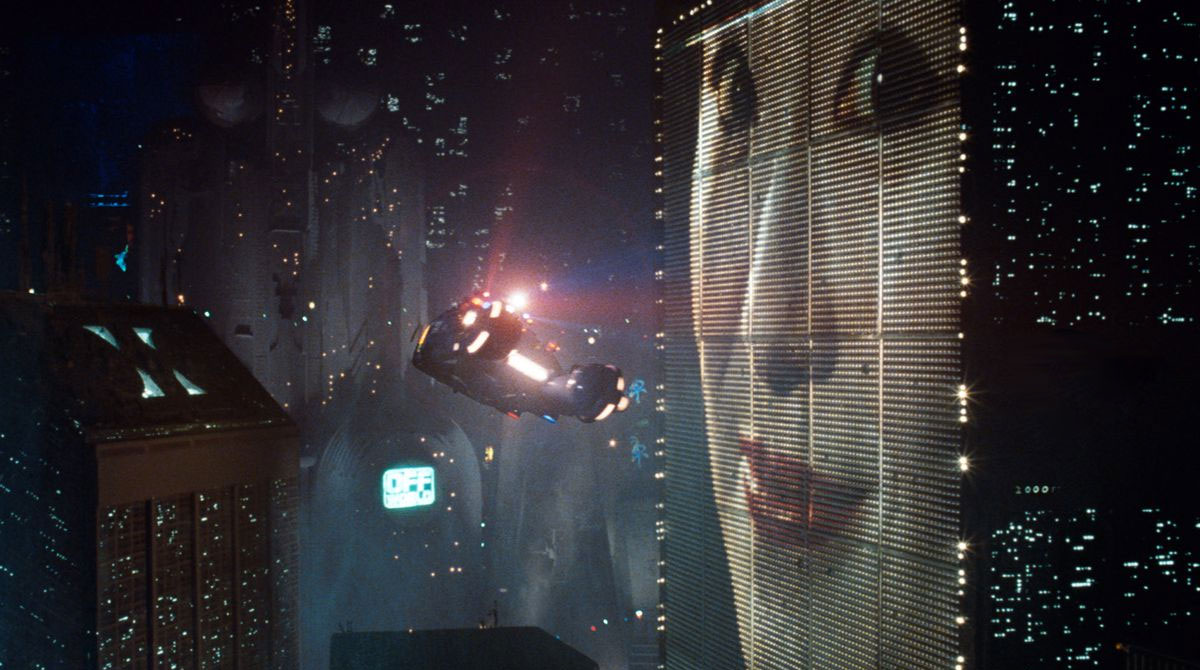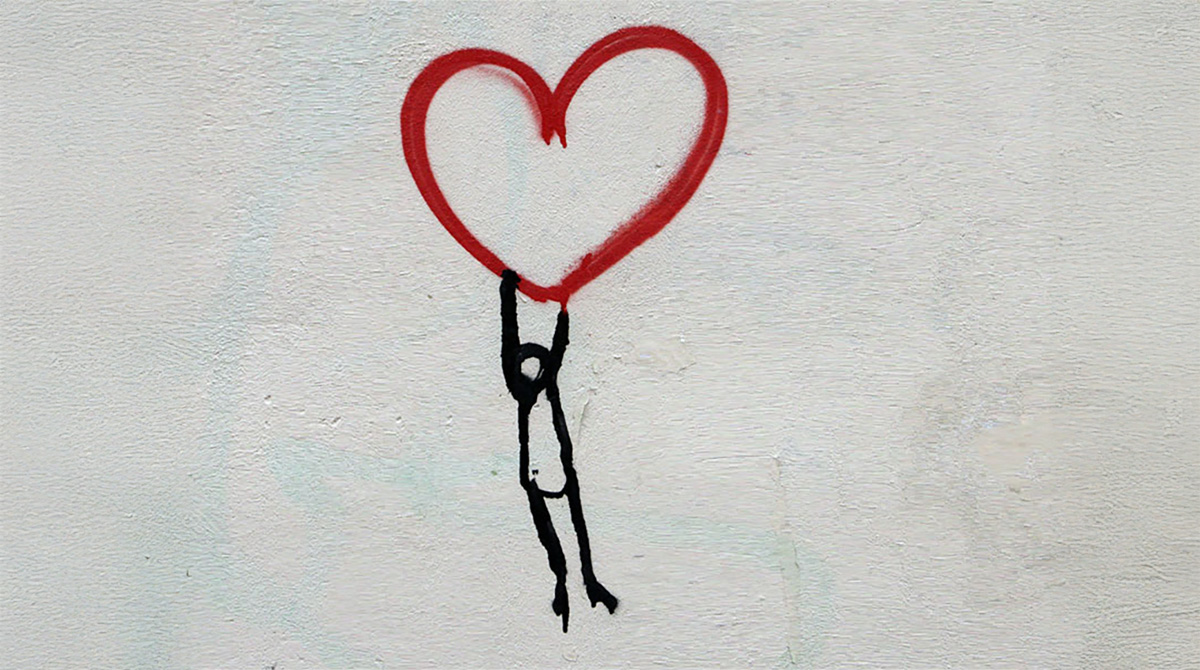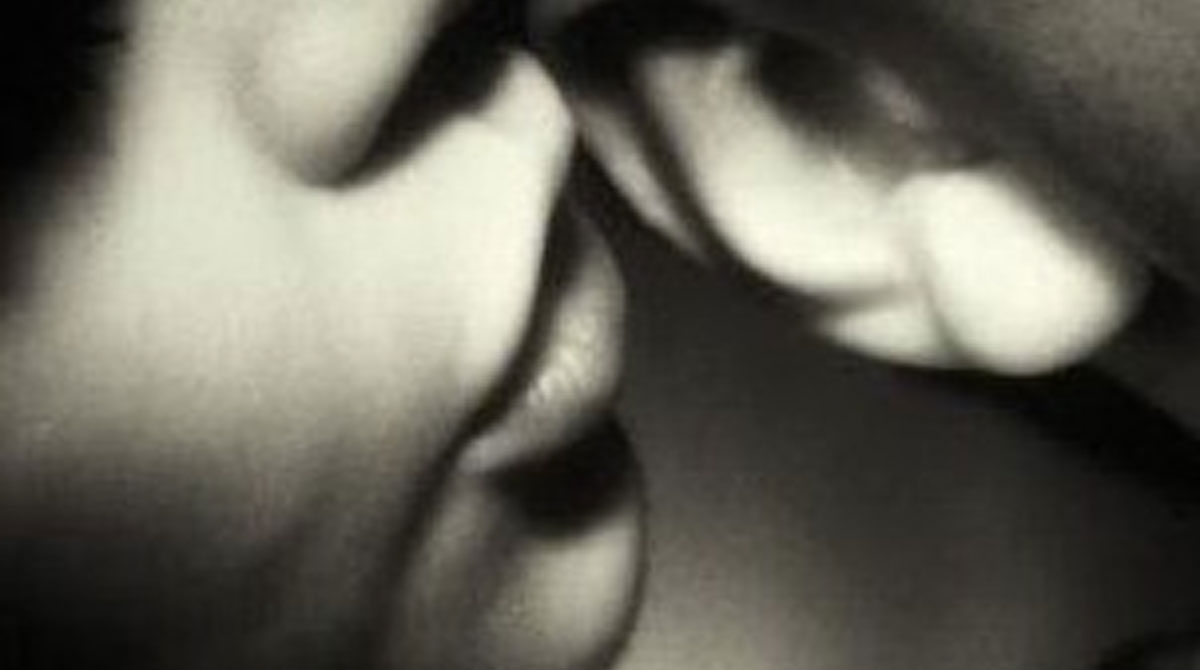Blade Runner: 99 Science Fiction Films You Must See
The first thing you need to figure out when talking about Blade Runner is just what film it is that you are watching. As of this writing, there are seven versions available. Of those versions, three are considered standard and are the most often shown.
The Theatrical Cut is the version originally released in theaters in 1982. The studio was wary of director Ridley Scott’s vision and cut this version differently against his wishes. Feeling that the story was too confusing and cerebral a voice-over narration by Harrison Ford was added to explain things, sometimes painstakingly so. Violent scenes were reduced or cut completely and most of the film’s ambiguity was removed with a “happy ending” added of Rachel and Deckard riding off into a literal sunset.
In 1992 a Director’s Cut was released with significant changes from the theatrical version. Although called the “director’s cut” Ridley Scott did not actually have a hand in this due to other commitments at the time. He did contribute extensive notes and consultation on the project, however. The major changes are the removal of the narration, the addition of a dream sequence of a running unicorn, and the removal of the “happy ending” leaving the film more ambiguous as to the fate of the characters. This version was seen as a monumental improvement over the original and closer to the director’s vision and intent. That is until 2007.
For the 25th anniversary of the film, Ridley Scott was given for the first time complete artistic control. The film was completely re-mastered and cut-down scenes were restored to their original length. The scenes deemed too violent were restored, and a longer version of the unicorn dream added alternate edits inserted. This version is called the Final Cut and it is the version I will be talking about when I talk about Blade Runner. I believe this is the best version of the film and if you are going to watch it this is the one you should watch.
That being said I have to admit that the Theatrical Cut still holds a very special place in my heart. It is considered the worst version, and to be fair it probably is, but when I first saw this movie it was the only version.
In 1982 I was thirteen years old and I went to see this movie with friends. A group of rowdy thirteen-year-old boys, there were five of us total. Because the star was Harrison Ford we thought we were going to see a Raiders of the Lost Ark/Star Wars hybrid. What we got was a slow, meditative space-noir film with not a lot of action. When we left the theater there were moans about how boring it was and how much it sucked so bad. And I added my voice to these dissents because I was thirteen and not at all confident to actually put my own opinion forward. But secretly I loved it.
Later when it started showing at the dollar theater I went to see it two more times; once with my brother and once by myself. It moved me. It mesmerized me. And although at the time I could never have put my finger on just why and I would never have used this term, but it touched me in a very existential way. Mortality, identity, slavery, class, and a world dying all around us; are the themes of Blade Runner and they still move me to this day.
What It’s About
Blade Runner is based loosely on the novel Do Androids Dream of Electric Sheep? by Philip K. Dick. And I do mean loosely. The connection is strained to be sure, but the themes and the intention of the novel and the film do connect.
In the near future (2019 actually) Earth is an ecological disaster. Many have left for the off-world colonies. In these colonies, people are given replicants, androids that look and act human, as slaves. In order to be able to relate to the humans the replicants are given false memories to make them believe they are human; to be “more human than human.” In fear that they might actually develop real emotions, the replicants are given a four-year lifespan. Occasionally the replicants want more and run away. When that happens a special type of police officer called a “Blade Runner” is charged with tracking them down and “retiring” them. Retirement is permanent.
Four of the most advanced replicants, the nexus 6 type, escape and come to Earth. Deckard (Harrison Ford) is the Blade runner tasked to track them down. He seems to be having a moral dilemma as he does so because along the way he meets Rachel (Sean Young), someone he believes at first to be a real woman but who actually is herself a nexus 6, and falls in love with her.
Meanwhile, the escaped nexus 6 replicants, led by Roy Batty (Rutger Hauer) attempt to find their creators and get a longer life. It does not go well.
Deckard eventually tracks down the replicants and has a final showdown with Roy that ends with a touching monologue in the rain.
I have deliberately kept this synopsis vague. First of all, I don’t think I can truly do justice to the complexity of the story and second, ambiguity makes this film better so why not the synopsis as well?

Blade Runner (1985)
Ridley Scott
“I’ve seen things you people wouldn’t believe. Attack ships on fire off the shoulder of Orion. I watched C-beams glitter in the dark near the Tannhauser gate. All those moments will be lost in time… like tears in rain… Time to die.” – Batty
Why You Must See It
First of all, it’s beautiful. It is simply one of the most stunning films ever made. This is not hyperbole. Turn it on, and turn the sound down; it will still be a wonderful thing to behold. But the look is just the beginning, it is the surface. The real brilliance is the story.
What does it mean to be human? Physiology? Is what your body is or looks like what makes you human? Perhaps memory? Does what you experience make you human? Maybe it’s how you react to stimuli? If you are empathetic to other life you are yourself alive.
But what if you were simply made to look like a human, a perfect simulation but artificial? And what if the memories you have are really implanted there, making you think you have lived for many years when in fact you are only an hour old? And what if you were told that you were not real, not actual, what if you were told that you were a thing and to be used only as a slave?
These are the major themes of Blade Runner. What makes you a person? and What does it mean to live? Or to be alive. How do we know we are alive? What does that actually mean?
This is what Blade Runner is about. It is a beautiful meditation on existence. It is an accusation of society.
The society we see in Blade Runner is vertical. Literally, the people who are higher up are wealthy and respected and those lower down are nothing. They are unseen, in shadow; they do the work and are forgotten. Roy, the one who is not human, is the least among us. He is a slave, he is considered a non-thing to be destroyed, and in his quest to simply be alive, he ends up scared and violent. But in the end, he is the most human, wanting only what all humans want; to live and to know why we are alive.
The movie is a noir-style detective film with multiple homages to older classics and hidden inside is an exploration of the human experience. All wrapped in sci-fi trappings of a world that is not yet but could very well be. The look, the sound, the music, the acting, the story, the themes, the production, the atmosphere – everything about this film combine to make it something unreal but somehow familiar. It is a unique vision filled with universal ideas.
Are There Flaws?
Yes, of course. Nothing is without flaws. But for this film, it really depends on which version you are looking at. I recommend watching the Final Cut and whatever flaws there might be are minimal.
Closing Thoughts
This is one of the few times I will say that a film is a masterpiece. There will be films on this list that are good, great, or brilliant – but a very small number are absolute masterpieces. I truly believe Blade Runner is a work of art, a work of philosophy, a meditation on life and our society. Does that sound heavy-handed? So be it. I never grow tired of this film. Every time I see it, and I have seen it many times, it still holds me in rapt attention. Every time I see it I am still that young boy seeing something he does not quite understand but knows it’s important; feeling something he can’t quite explain but knows it will change him. For me, this film is a remarkable achievement.
Original Theatrical Trailer
Originally published March 12, 2015












Likhon chowdhury says:
Conor says:
Andy Garcia says: